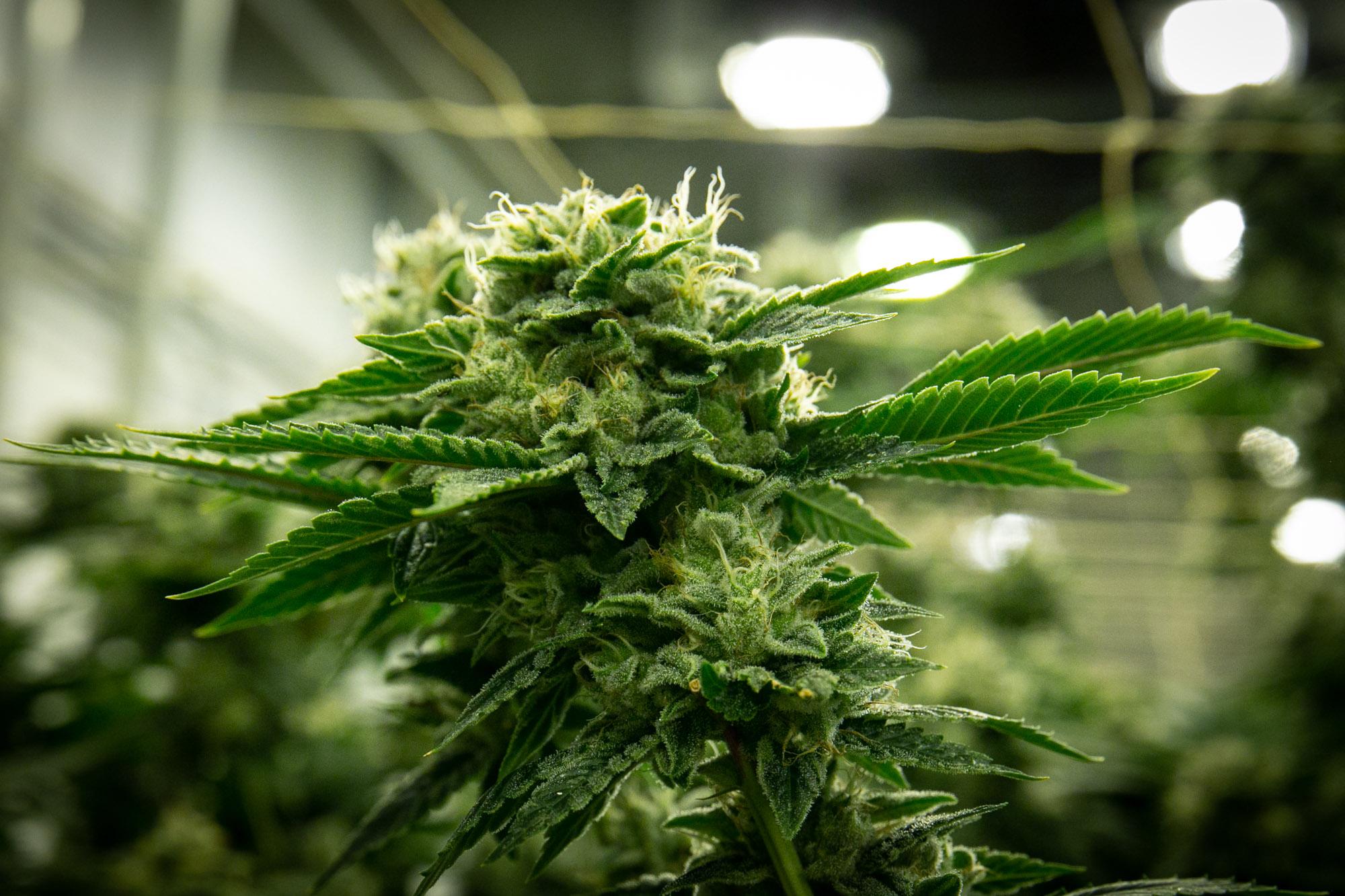
There’s so much mold and fungus in the world that scientists believe people probably breathe a little in everyday.
But Colorado still doesn’t want it in cannabis.
Last year, there was a sharp increase in health and safety advisories from the state’s Marijuana Enforcement Division. The sweeping recall of products over the last year has led to frustration in an industry that has fallen on difficult economic times, as sales and prices have fallen. Growers believe the contamination thresholds are too low.
Recalls were rising before last year, but expanded when the state began testing for a fungus called Aspergillus, which in rare cases can lead to death in immunocompromised marijuana users. Regulators said they were unaware of any deaths in Colorado.
Colorado’s regulators believe the danger of these contaminants outweigh the inconvenience to growers and stores.
Aspergillus can cause a serious lung infection called Aspergillosis, which has been linked to a “few fatalities” outside the state related to cannabis, said Brandon Jeffery, director of Marijuana Sciences at the Marijuana Enforcement Division.
“There is a known risk with Aspergillus,” Jeffery said.
The new testing requirements were part of an extensive public process, but Jeffery said they can potentially be adjusted. “The question as to whether our limits for Aspergillus are correct, and what we're testing for is correct, is ongoing.”
The controversy over the limits and testing points out the challenges of state regulation of a drug that remains unlawful at the federal level. The Federal Food and Drug Administration has a more than $7 billion budget to write rules, do research and perform tests to keep consumer products safe.
When it comes to marijuana safety, Colorado, and other states where it is legal, are on their own with few of the resources the federal government could bring to bear on health and safety questions.
Recalls were already rising before the state began catching Aspergillus in testing, but last year was especially busy. The MED issued 17 health and safety advisories, the most in seven years — up from just three in 2019. The advisories affect products sold at dozens of dispensaries across Colorado, and stretch back in some cases to marijuana that was sold in 2020.
The question for the industry is not whether a fungus like Aspergillus can potentially be dangerous, but at what level it can be present, but still safe for consumers. The current standard in Colorado, which applies to all forms of marijuana products, is too low, they argue.
“I think it's almost an impossible standard, and I think it would be worth it to take a step back,” said Kevin Gallagher, executive director of the Colorado Cannabis Manufacturers Association. “It's incredibly easy to fail.”
Scientists sympathize with the frustrations of industry, it’s not easy to eliminate microbes that are ubiquitous, but there are proven ways to manage things like Aspergillus. And the health implications are serious, especially for people using marijuana for legitimate medical reasons.
“These folks are likely to be more vulnerable populations, meaning they have compromised immune systems,” Tess Eidem, a microbiologist and senior research scientist at CU Boulder, said. Eidem owns a company called Rogue Micro, which consults on microbial contamination for cannabis companies.
In a large analysis of insurance data, the CDC found a greater incidence of fungal infections in cannabis consumers. The number of infections was still small, just 0.08% of marijuana users. “Although these infections were uncommon, they can result in substantial illness and even death, particularly in immunocompromised persons,” reads the report.
Eidem supports Colorado setting strict standards for molds, yeasts and Aspergillus, but she said the state should also regulate the design of facilities to control the growth of these contaminants in the first place.
Currently, growers just have to pass the testing at the end of the grow process.
“Which means you can do kind of whatever you want upstream in your garden, in cultivation,” Eidem said. “Are they proactively addressing diseased plants or bad air quality or mold on the walls? Are they cleaning? Would the facility pass a basic health inspection that any restaurant has to pass? The answer is probably not.”
Eidem is also concerned about the abuse of ozone and irradiation treatments by some marijuana cultivators to recover cannabis that would otherwise fail testing. Colorado’s regulations allow this, but she said that isn’t permitted for other consumed goods.
“You can't take leafy greens that are spoiled or have E. coli on them and blast them with ozone or radiate them and then sell them to consumers. That's not allowed. But in cannabis it is, in many states you can do it indefinitely,” Eidem said. “So you can just treat and treat and treat until you pass.”
One of the most recent state recalls was late last year for marijuana grown at Boone Farms and Angel Farms, both owned by Cary Carpenter. The contaminated product was found to have been sold as far back as 2020, before Aspergillus standards were set.
“They came in and retested 10 samples,” Carpenter said in a brief phone interview. “Most of it was Aspergillus, which we didn't test during that period at all for. And then they went back all the way through our product.”
Carpenter said that 72 pounds of product was recalled, which he said was not a lot for him. He cut the interview short, however, and did not respond to subsequent attempts to contact him.
While Carpenter doesn’t believe the recall is significant for him, it did come at a difficult time for his business, and for the broader marijuana industry.
“It's tough right now,” Gallagher said about the general economic declines in the industry. “And every business is honestly just trying to hold their necks up and trying to breathe here.”
Add to that tough new testing standards for contaminants. But experts say that doesn’t mean safety standards should be relaxed, and the state should make an effort to regulate the design of grow facilities for safety, rather than just testing the end product.
“Yeah, the industry is hurting,” Eidem said. “But adopting these principles actually saves you money in the long run — your quality is better, your plants are healthier.”








